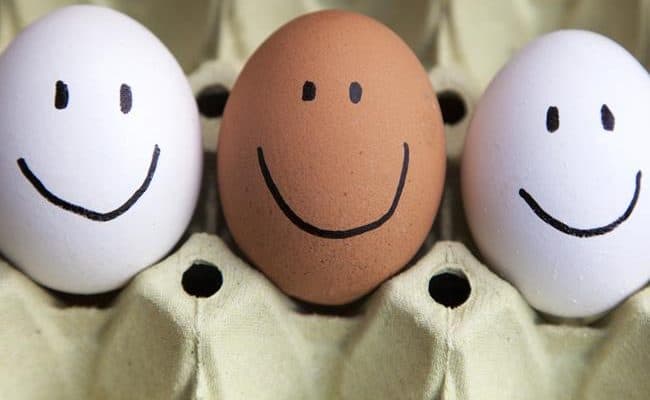
Over sixty percent of the population in the US as overweight or obese, and weight loss is a health goal for many people. The concern with carrying extra fat is the increased risk for chronic diseases including type 2 diabetes and cardiovascular disease. The solution many researchers and health professionals have for lowering risk and losing fat mass has been to focus on lowering energy intake and increasing energy expenditure with exercise. Some people focus just on eating less or on increasing exercise.
While research with weight loss has been around for decades, surprisingly the best way to lose weight is still somewhat of a mystery.
People can lose weight many different ways, and there is high individuality for weight loss programs. Eating less may be more helpful for weight loss, but exercise can help keep muscle mass and support weight maintenance.
A general consensus is that cutting back energy intake while increasing energy expenditure is best for weight loss and overall health.
However, the exact amounts to shift for individuals are still being understood.
Benefits of eating less
Eating less calories is a basic way to shift your body to using fat stores for energy. Ideally the goal of weight loss is to have your body rely on stored energy, fat, for fuel instead storing energy.
Cutting back your food intake shifts your body to use stored energy and is something we can control for weight loss.
Genetic factors can play a role on weight loss, but we can’t change our genes. We can control what we put in our mouth.
The goal of eating less should be on eating quality calories that provide as many nutrients as possible for the energy they provide.
The more you cut back your food intake the more dramatic result of weight loss usually is. However, severe food limitation can be hard to sustain.
Drawbacks for just eating less
A known drawback for cutting back food intake is it can lower muscle mass and metabolic rate. If you do not do exercise, or specifically weight resistance, with cutting back your calories you could be lowering your muscle mass along with fat mass.
Researchers from a 2006 research article (1) suggests the addition of exercise with dietary restriction can promote the retention of muscle mass more than just energy restriction or exercise program independently.
Benefits of exercising
Increasing exercise is one of the biggest ways we can increase energy expenditure. This increase should help the body get rid of stored energy of fat.
Exercise can also increase muscle mitochondria and help the body use fat and carbohydrates more efficiently for fuel.
Exercise can help you retain muscle mass while going through weight loss compared to just eating less.
Plus, exercising while trying to lose weight can enforce the habit of exercising for health long term. Many studies have also suggested exercise is important for long term weight maintenance (2).
Drawbacks for just exercising
Contrary to popular opinion, clinically significant weight loss from just exercising alone is not supported from most research studies (3).
If someone dramatically increases their exercise and sustains this for a long time, weight loss is more likely to occur only from the change in exercise.
If you don’t regulate your food intake at the same time you start increasing your exercise, it can be easy to match your food intake or over compensate with food intake.
It can be easy to bump up your food intake if your appetite increases or you just feel you can reward yourself more from your hard work from exercise.
Exercise can have health benefit even if there is no weight loss. However, if you are specifically trying to lose weight, you may need to do more than just exercising alone.
Importance of combining eating less and exercising
A 2014 review article (4) compared weight loss from research studies using only diet or exercise compared to studies that used both approaches behavioral changes.
Researchers found from 3-6 months, there wasn’t significant difference between diet only groups and combined groups.
However, at 12 months, behavior change groups with diet and exercise lost significant more weight than interventions with just diet or exercise. Weight loss groups with exercise alone showed to be the least effective for weight loss, while combining diet and exercise was most successful for weight loss for at least 12 months.
Long term weight maintenance success
For weight maintenance success without regaining weight, exercise can be an important factor.
Many people who have grown through successful long term weight report they still need to keep a high level of physical activity to avoid regaining weight.
Healthy eating choices also need to be maintained. A common tendency is to fall into unhealthy eating behaviors after reaching a goal weight.
Genetic differences
How can some people lose weight quickly while others struggle to lose weight? Why can some people exercise just a small amount and be successful at weight loss and others need to exercise a lot more? Why do some people feel they can’t lose weight no matter what they try?
The answer to these questions, and other individual variances, can mostly be attributed to genetic differences.
A 2016 study (5) found people with a certain genetic predisposition may be more successful with weight loss from a diet and exercise intervention.
In the future, weight loss advice could be based more on genetic profiling. However, more research needs to be done before this can be fully implemented with success.
Conclusion
The perfect system for weight loss can vary from person to person, but research suggests weight loss is best combined with changing your eating habits along with increasing exercise.
For the short term, weight loss can happen from diet only or a combination of diet and exercise.
Long term weight loss has been shown to be more successful with a combination of eating healthier and increasing exercise.
Exercising alone has not been shown to be successful for weight loss. However, exercise along with a weight loss program can help keep muscle mass.










